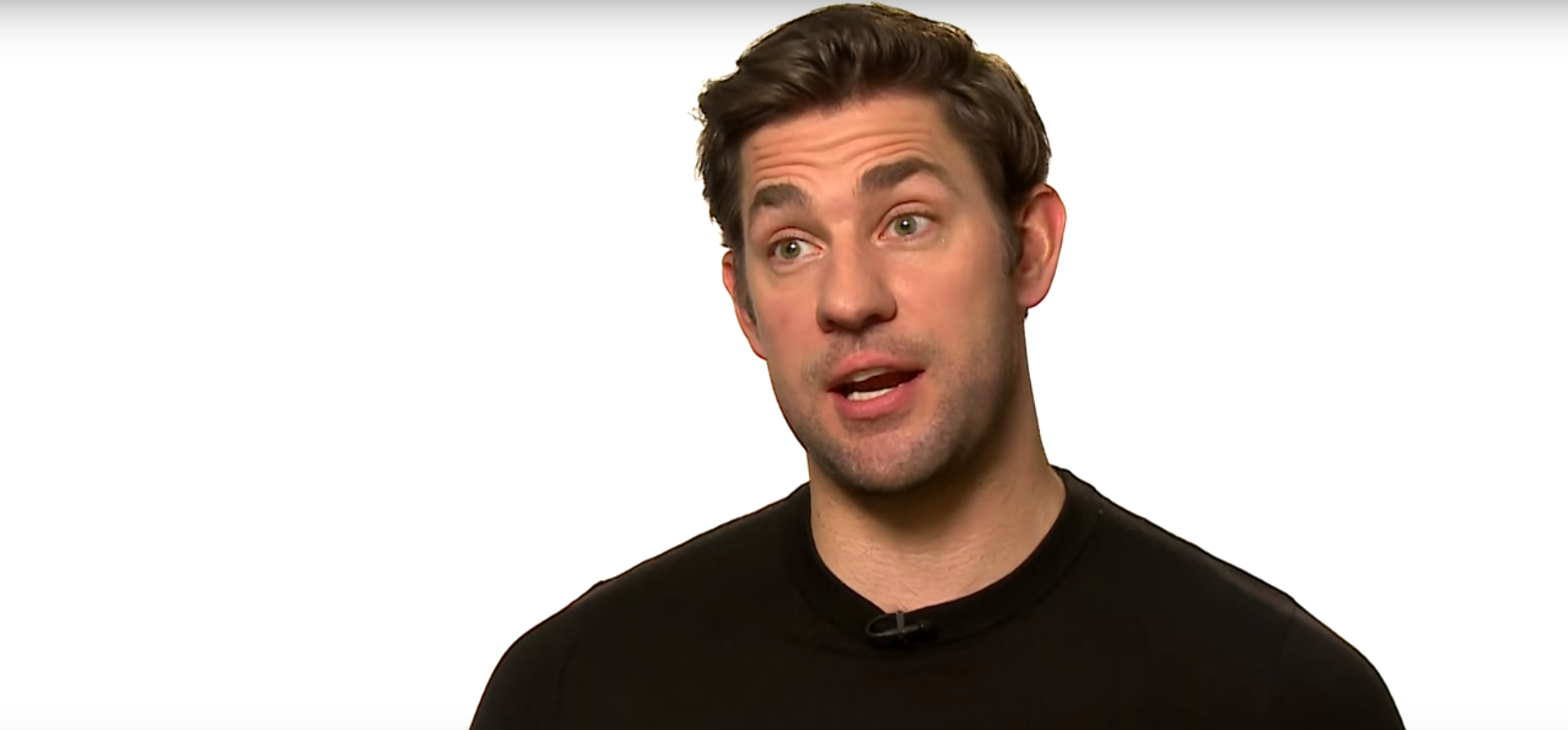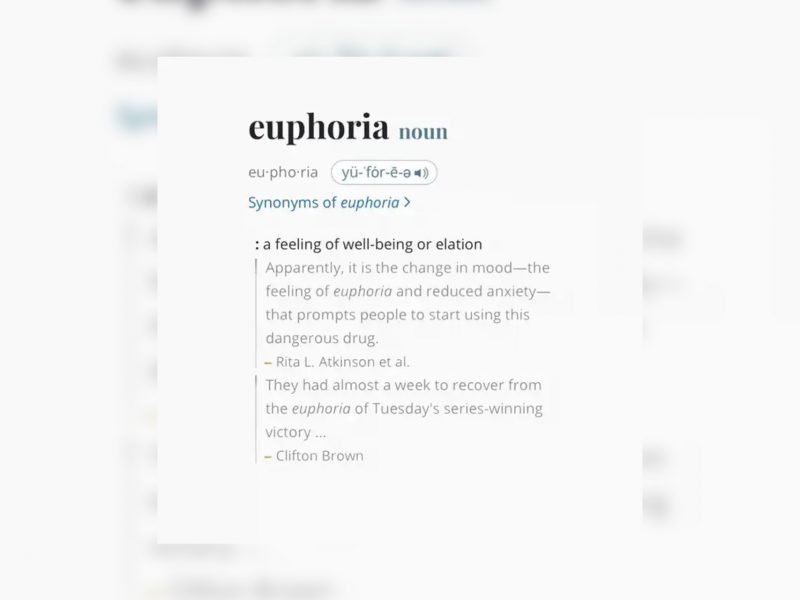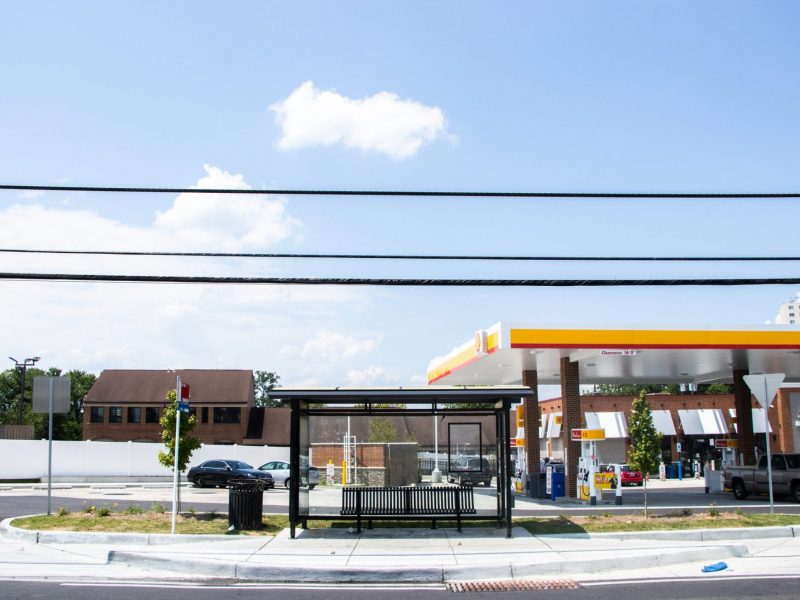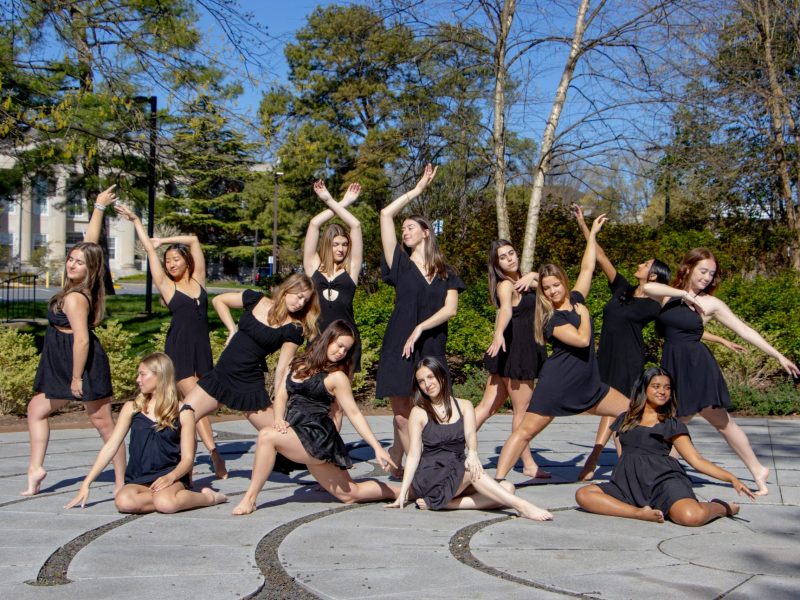By the time I arrived at The Ritz-Carlton in Georgetown a little after 1:15, I was sweating profusely. This was not nervous sweat. Trust me, it had nothing to do with the reason why I was at the upscale hotel — to interview the actor John Krasinski — nor was it related to the e-mail asking me to arrive at 1:05. I’ll admit that The Office has its place in my television canon, and the opportunity to talk to Krasinski about his new movie, The Hollars, was a late-summer highlight on my calendar. But the reason I felt like one of Dali’s clocks as I passed by a suspicious doorman on that August afternoon was purely because it was 97 degrees out and some bold Metro decisions on my part had made the now extensive walk to the Ritz feel somewhat like a stroll through the depths of hell.
As I tried to get my shit together with some long sleeve brow wipes (the only upside of choosing to wear that shirt), I was led with another journalist to the elevator that would take us up to Krasinski’s room. I had spent much of the last 24 hours thinking a lot about the actor’s career, and the fruits of this labor were now scribbled in the notebook in my hand. But my thinking also had another effect — a kind of uptick in excitement beyond what I felt as an avid fan of The Office and 2009’s Away We Go: I realized when looking at Krasinski’s IMDB page that one of America’s golden boys is much harder to pin down than I originally thought.
Krasinski is at a point in his career —- coming off of a big-budget curveball in the form of the Benghazi thriller 13 Hours, having recently wrapped up an off-Broadway play and now directing his second film where it’s become clear that he’s trying anything and everything in search of art he’s passionate about. It’s the kind of thing that you don’t see enough in Hollywood — something you root for. John Krasinski, right now, is wonderfully unpredictable.
We got off the elevator and quietly entered his room. He stood up, gave us that smile and shook our hands, introducing himself as “John.” Wearing a dark, long-sleeve shirt (great minds think alike), black jeans and a pair of Oxfords, he seemed comfortable and relaxed. We sat down on a couch as he pulled another one closer and planted himself on the edge of it. He sat perched on the edge of a cushion, seeming eager, excited and inviting for the entirety of the interview.
The Diamondback: Good thing you’re not staying in D.C. for long because this is the worst form of D.C. that you can see.
John Krasinski: Really? Because it’s so hot?
DBK: Yeah, D.C. is great, but this is the worst. Because it’s so hot and people get nasty.
J.K.: But New York is this hot, too, so it’s bad everywhere.
My co-interviewer, Trisha Brown of Brightest Young Things, nicely offers me the first question.
J.K.: Look at that, very cordial.
DBK: So recently you did a play [Dry Powder at The Public Theater in New York], you were in a full-fledged blockbuster with 13 Hours and now you’re directing a movie for a second time. Are you viewing this as a period of experimentation? How are you picking your projects right now? Because they’re so varied.
J.K.: I hope the rest of my career is experimentation. I think we’re in the wild west of storytelling mediums in general, so for me that’s really exciting. There’s this idea that we’re over-saturated with things to watch, which may be true, but it also forces people to do new and cooler things.
For me, coming off of [The Office], it was all about trying new things and doing things that really pushed me as an artist -— or whatever sounds less pretentious than that.
I feel so lucky to do be doing what I’m doing, so part of the way I try to express how lucky I feel is to keep doing new things and not get stagnant because if anybody else had the opportunity that I have I’m sure they’d try to do a whole lot with it. Certainly my friends that I came up with would do that, so I’m doing it for all of us.
DBK: As I watched [The Hollars], some of the smaller, quieter moments with Anna Kendrick’s pregnant character reminded me of one of my favorite films, and that’s Away We Go—
J.K.: Oh nice! Thanks!
DBK: So when you’re directing a movie or acting in a movie, do you think back to previous projects or does that get in the way of your creative process?
J.K.: No, one of the cool things about being an actor is that you basically are watching directors work all day for free. You can make a professional living out of stealing what works and what doesn’t because you watch these unbelievably talented people do great work and you remember what works for you.
I think I stole a lot of different things from all these different directors. What I tried to do most as a director on this was create an environment in which the actors could do what they needed to do. For instance, the dramatic moments with Margo [Martindale], my job was to make it feel like a play to her, so she could feel organic. I didn’t want it to be like ‘this is an amazing moment but now we have to cut in to your face,’ so what I did was set up the scene with several different cameras so any way she wanted to start I was ready for. That was purely a decision I made from my own experience of knowing sometimes I feel it and sometimes I don’t and this way I could be prepared.
DBK: As a writer from a college paper, I always have to ask one question about college. So when you were in college, what kind of movies were you into and would you have liked this movie?
J.K.: Oh, good question. I definitely would have liked this movie. This probably sounds like a canned line, but it has that independent spirit and that’s what I loved about movies. For me, bizarrely, movies and I had an interesting relationship in college because when I first went to school, if it wasn’t in a Cineplex I didn’t see the movie, and if it wasn’t on the radio I hadn’t heard that song. Then I went to Brown University, where there was a lot of interesting people and I basically challenged my friends to give me a new album and a new movie every single week.
So my college experience was two-fold: one, the real college experience, and then this separate almost-as-important if not more important experience of a whole new renaissance for me of film-watching and music-listening.
The movies I was watching were people’s favorite indies that I never would have seen myself, and I felt like a kid in a candy store. It was a whole new awakening to all this awesome film. I was watching art house movies and movies that I still can’t really make sense of but my super smart friends could and that was really fun. It was such a community thing and a conversation-starter. And I take that with me as I choose projects, when I put effort into a film as a director I want it to resonate with that era of my film-watching life.
DBK: Is there a particularly movie or particular shot that made you want to direct?
J.K.: Yeah, subconsciously probably a ton. I will say, and this sounds like I’m totally just waving the Boston flag, that Good Will Hunting was massive for me. There’s a great example of a movie that has an indie spirit but a universal connectivity to it— this idea of being the underdog. Growing up obviously I was a huge Boston kid, and still am, but watching Gus [Van Sant]’s work in that made me realize that storytelling doesn’t have to be manipulative or served to you. You can make movies that are really wonderful, beautiful, uplifting stories that are also challenging.
One of my favorite notes on this movie came from when I showed a cut of it to Tom McCarthy, the director of Spotlight, right before Sundance. He said “I really like it but I think you can make it messier.” I asked him what he meant. And he said that family is messy and being a part of a family is messy; nothing really works out exactly the way you want it to. So you can mess up the characters a bit more and cut up the timing and not have everything end perfectly.
DBK: We talked earlier about taking on different projects and there’s obviously a ton of talk right now about how big T.V. is, so would you ever consider getting back into T.V.?
J.K.: Just did this morning! [Interviewer’s note: I wasn’t wildly unprepared, alright? I just did my research the night before instead of that morning. Bad timing.] I’m doing the Amazon series of Jack Ryan. The pitch to me that really worked, because I just wanted to do something interesting; I don’t care what medium it is, so that pitch was that Jack Ryan’s superpower is just intelligence. So everything needs to be longer and drawn-out and more cerebral so maybe movies aren’t the best way to capture him. So every season is going to be like a ten-hour movie instead of a T.V. season. Hopefully all goes well.
Questions and answers both edited for length and clarity.



